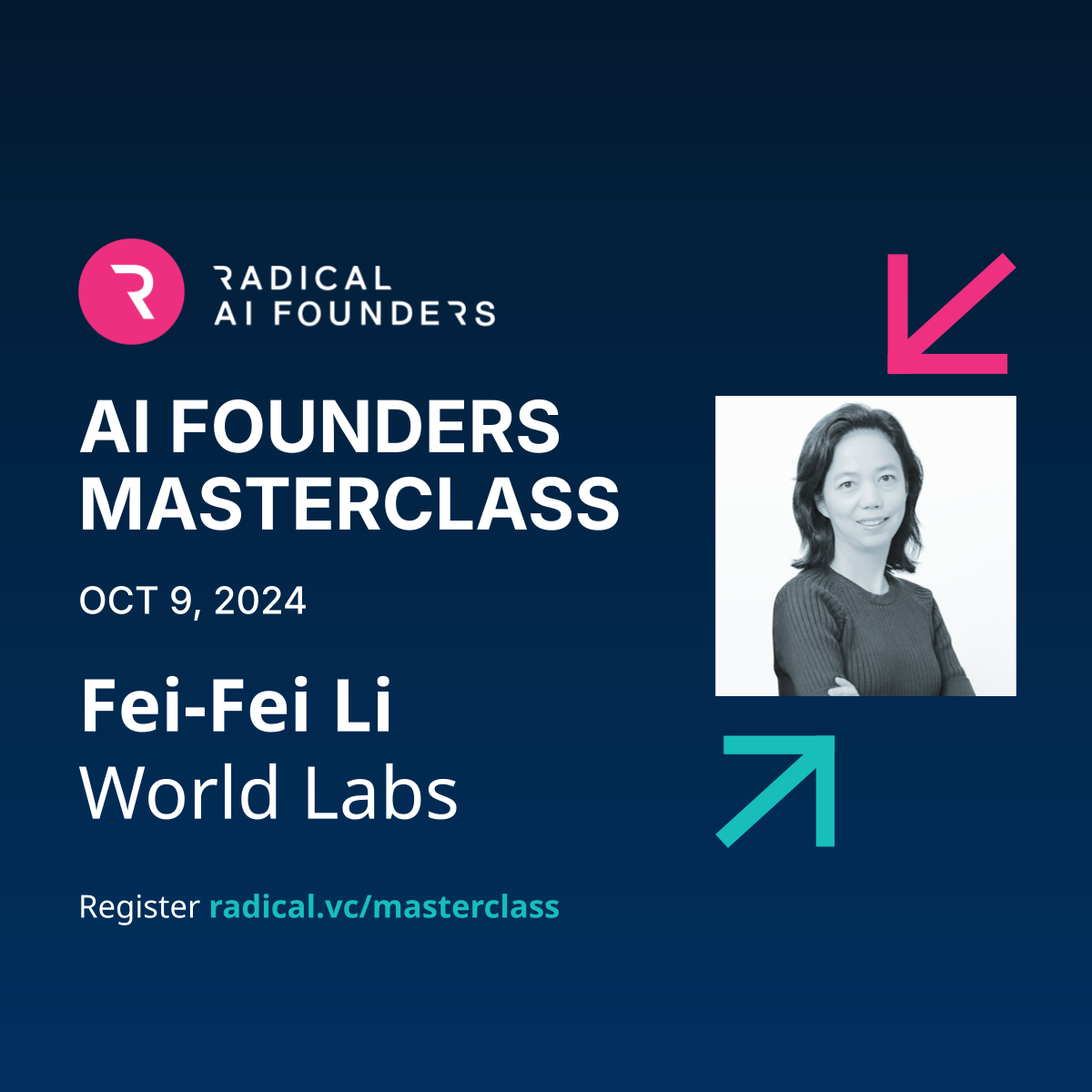Designing new chemicals and materials has long relied on time-consuming processes and trial-and-error methods that typically require many years of experimentation before achieving success (if any). The search space of potential elemental combinations is vast, the interactions among materials’ interdependent properties entail high-dimensional complexity, and the capacity to synthesize prototypes is limited, all of which makes testing every candidate impractical and expensive.
Yet these are precisely the conditions in which machine learning techniques excel – and why we are so excited to have announced this week that Radical Ventures led Orbital Materials’ $16 million Series A round, with participation from Toyota Ventures and a select group of existing and new investors.
Founded in London by a world-class, multidisciplinary team and led by DeepMind alumnus Jonathan (“Jonny”) Godwin, who pioneered DeepMind’s research in this area, Orbital Materials is tackling clean air, water, and energy by leveraging AI to discover and commercialize breakthrough solutions. Orbital Materials has a robust pipeline of new materials in development, the first being a product (and associated chemical process) capable of dramatically reducing the cost of industrial-scale carbon capture.
At Orbital’s core is “LINUS,” an AI foundation model tailored for materials science. Trained on the largest and most diverse dataset of materials in the world, LINUS has enabled the team, which includes seasoned experts with decades of experience in chemical manufacturing, to accelerate new product development by a factor of 10x.
Having recently established a new “wet” lab in New Jersey, the team has successfully validated experimentally the outputs that LINUS has generated computationally. With its pipeline of advanced materials and chemical technologies, Orbital is poised to have impact on a global scale.
See here for TechCrunch’s coverage.
AI News This Week
-
DatologyAI is building tech to automatically curate AI training datasets (TechCrunch)
Founded by AI industry veteran Ari Morcos, DatologyAI aims to revolutionize AI model training by automating data preparation processes. As Marcos puts it, “Models are what they eat. AI models trained on large-scale datasets have demonstrated jaw-dropping abilities and have the power to transform every aspect of our daily lives, from work to play.” Addressing the challenges of biases and inefficiencies in massive training datasets, DatologyAI develops tools for curating datasets more effectively, enhancing model training efficiency, and improving model performance. Radical Ventures invested in DatologyAI alongside Amplify Partners and AI luminaries such as Google chief scientist Jeff Dean, Meta chief AI scientist Yann LeCun, and the ‘Godfather of AI’ Geoffrey Hinton.
-
Adtech pioneers launch AI startup to empower publishers and brands at ‘crucial moment’ (VentureBeat)
Firsthand, a company enabling publishers and brands to build and distribute AI agents anywhere their consumers are, emerged from stealth with a seed round led by Radical Ventures. The company’s innovative platform empowers publishers and brands to create their own AI agents. These agents can conduct 1:1 personalized conversations with consumers in their moment of need, anywhere they’re seeking information online. This represents a shift in how publishers and brands can control how, when, and where their content appears in front of consumers, on site and beyond their own digital properties – all powered by intelligent, AI-directed interactions. Firsthand was founded in 2023 by Jonathan Heller, Michael Rubenstein, and Wei Wei, pioneers of digital advertising who built industry-leading platform companies including DoubleClick, AppNexus, and Freewheel.
-
US patent office confirms AI can’t hold patents (The Verge)
The US Patent and Trademark Office (USPTO) maintains that artificial intelligence systems cannot be named inventors, but humans can use AI tools in the process of creating patented inventions and must disclose if they do. The agency published its latest guidance stating that while AI systems and other “non-natural persons” cannot be listed as inventors in patent applications, “the use of an AI system by a natural person does not preclude a natural person from qualifying as an inventor.”
-
AI chip demand forces Huawei to slow smartphone production (Reuters)
In response to US export bans on advanced chips, Huawei is moving to prioritize its AI chip production, notably the Ascend 910B, over its popular Mate 60 smartphone chips. Manufactured by China’s SMIC, the Ascend 910B is filling the gap left by the scarce Nvidia H100 chips, making Huawei a key player in China’s AI chip market. Huawei’s pivot may address the supply constraints facing the global AI chip market and could signal a significant shift in the global tech landscape as the US-China tech rivalry expands to encompass AI chip production.
-
Research: Learning Unsupervised World Models for Autonomous Driving via Discrete Diffusion (University of Toronto / Waabi)
Researchers at the University of Toronto and Waabi, a Radical Ventures portfolio company, introduce a novel method for enabling autonomous vehicle systems to comprehend and predict their surroundings without the need for labeled data. While advancements in language models through Generative Pre-trained Transformers (GPT) have produced rapid and significant outcomes, progress in scaling world models for robotic applications, like autonomous driving, has lagged behind. Accepted to this year’s International Conference on Learning Representations (ICLR), their approach significantly improves environment prediction and could make learning in autonomous vehicles more scalable and efficient.
Radical Reads is edited by Leah Morris (Senior Director, Velocity Program, Radical Ventures).





